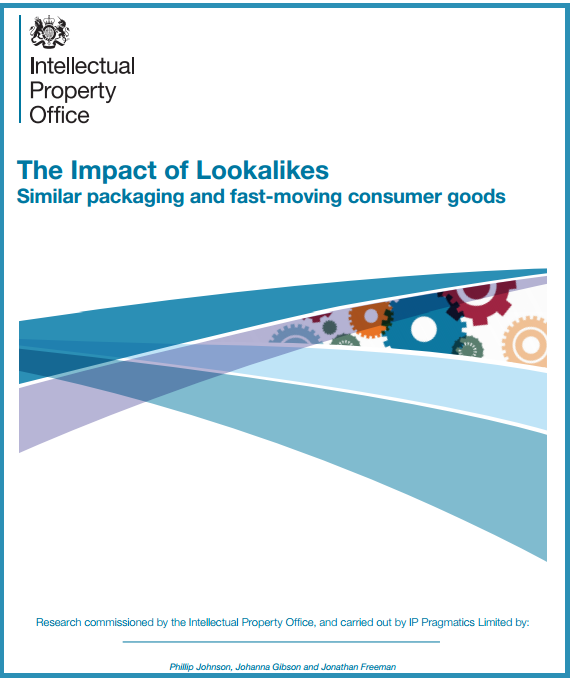UK IPO report: The impact of Lookalikes
Johnson, Gibson, Freeman, The Impact of Lookalikes. Similar packaging and fast-moving consumer goods, Newport: Intellectual Property Office, 1st april 2013. IPKat bericht: 'The Impact of Lookalikes', a research report that was commissioned by the United Kingdom Intellectual Property Office (IPO), attempts to exhaust the topic, providing a mass of data, cases and even a new set of working definitions. At 400 pages it will pretty well exhaust your Ryanair hand-luggage too. You can download it here, but the IPO advises against printing it out in case you exhaust your printer cartridge. The impact of lookalikes:
IPKat bericht: 'The Impact of Lookalikes', a research report that was commissioned by the United Kingdom Intellectual Property Office (IPO), attempts to exhaust the topic, providing a mass of data, cases and even a new set of working definitions. At 400 pages it will pretty well exhaust your Ryanair hand-luggage too. You can download it here, but the IPO advises against printing it out in case you exhaust your printer cartridge. The impact of lookalikes:
1. main report (142 pages)
2. annexes I to III (47 pages)
3. appendices A-F (81 pages)
4. appendices G-J (125 pages)
The legal analysis is summed up in just three succinct paragraphs:
22. In none of the three jurisdictions examined - the UK, Germany and the United States – was the legal position of lookalikes particularly clear. Nevertheless, at the interim stage, there is a perception that a claimant is more likely to be successful in the favourable German forum than in either of the other two countries [red. IPKat: the same perception that Germany is a favourable jurisdiction may be gleaned from trade mark law and might be something to do with the notion of confusion being traditionally seen as a matter of fact in the US and UK but as a matter of law in Germany].
23. It is probable that the prevention of certain lookalikes is within the scope of the Unfair Commercial Practices Directive (2005/29/EC).[red. IPKat: This Kat concurs, having sought to make this point in the past] Under this assumption, the United Kingdom may not be free to legislate to further prevent lookalikes save in business-to-business transactions. However, it would also mean that certain lookalikes are already unlawful under the Consumer Protection from Unfair Trading Regulations 2008.
24. Accordingly, if there is a restriction on legislation in relation to lookalikes, a private right of action under the Consumer Protection from Trading Regulations 2008 would be permitted under the Unfair Commercial Practices Directive.





















































































